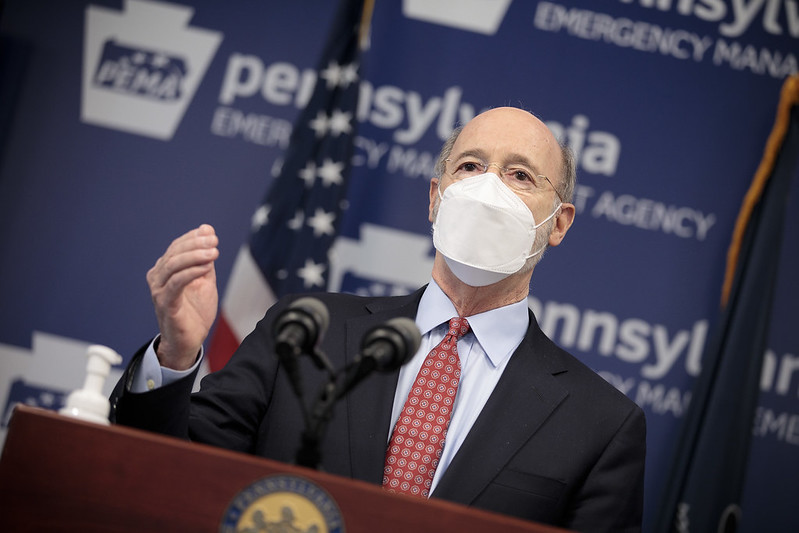Upper Moreland School District Blocking Records Related to School Closure Decisions

Sunshine is the best disinfectant, people say. As a matter of physical science, it’s dubious, but as far as the government is concerned, letting the people see how the sausage is made has become an essential part of life in a democratic society. The politicians and bureaucrats represent us, so we should be able to know what they are doing in our name.
That’s the theory, anyway. And we have to carry that theory into practice, including Pennsylvania’s Right-to-Know Law. But as one Upper Moreland resident recently discovered, there is often a gap between what the law promises and what local governments are willing to deliver without being dragged to court.
Kaitlin McLaughlin, a nurse and mother of four, shared some of the same concerns of many Pennsylvania parents after the massive, pandemic-fuelled disruptions of the 2019-2020 school year. Unlike most, she took steps to find answers, formally requesting that the Upper Moreland School District — where her two older children attend classes — reveal the process that led them to cancel in-person classes in favor of “virtual learning.”
What should have been a simple request has become a year-long odyssey. McLaughlin told Broad + Liberty that she first made the request in January of this year, asking for materials related to “the closure of in-person instruction and the continuation of the virtual learning model.” After she paid the processing fees the school district demanded, what she got was, in her words, “a box of nonsense.”
For four hundred dollars, McLaughlin received just under 150 records with redactions, most of which were unresponsive. To get the district to respond, she was forced to appeal their response to the Commonwealth’s Office of Open Records (OOR). The district dragged its feet in responding, which resulted in more time wasted in getting something the law already said McLaughlin was entitled to have.
By that time, she had decided to run for school board herself. But the change, if anything, made for even less cooperation.
The OOR ruled in September that most of McLaughlin’s challenges were well-grounded. Instead of running the kind of broad searches that might have captured all of the relevant documents, the district searched their e-mails and documents for specific phrases like “closure of in-person instruction” or “continuation of the virtual learning model”. Anything not containing those exact phrases was not produced.
“Obviously when you search for a phrase and it needs to require the entire phrase,” McLaughlin says, “it’s not going to turn up as many records.”
After granting several extensions, the OOR ruled in September that the district had “not demonstrated that its search for responsive records in its possession was sufficient.” OOR also ruled that the district overcharged McLaughlin for physical production of records that could have been delivered electronically and for free.
The district appealed that ruling to the Court of Common Pleas, which forced McLaughlin to hire legal counsel. The appeal is still pending at press time. Ordinarily, after the OOR rules, that’s that. But in a small number of instances, the government will elevate the matter to court. It puts yet another layer of burden on the requester, and also buys the government more time if they know the documents could lead to a public relations embarrassment, or worse.
Upper Moreland would rather spend the taxpayer’s money on high-priced legal battles than let a mother so much as read their deliberations on how her children are educated.
The whole affair is just one local example of a national trend of school administrators believing that parents deserve no input in what is being taught to their children.
“If they just gave me the records back in January,” McLaughlin says, “they wouldn’t have needed to spend all of this money to fight me on this, you know? And then when the OOR ruled in my favor, they still continued to fight me. What are you hiding?”
The district did not respond to a request for comment.
But the financial waste is not nearly as offensive as the willful obfuscation and delays and lack of democratic accountability. “Democracy Dies in Darkness,” as the Washington Post likes to say. Concerned parents like McLaughlin are trying to shine a light on their local government. The Upper Moreland School District should help her do that, not stand in her way.
The emergency of COVID-19 at first forced state and local governments to do what they had to do. Now, almost two years later, they think it allows them to do what they want to do — and not to tell the people how or why they are doing it. By enforcing the Right-to-Know Law, Pennsylvania’s courts can take one step in restoring the proper relationship between citizens and their public servants.
This article first appeared in Broad and Liberty.



